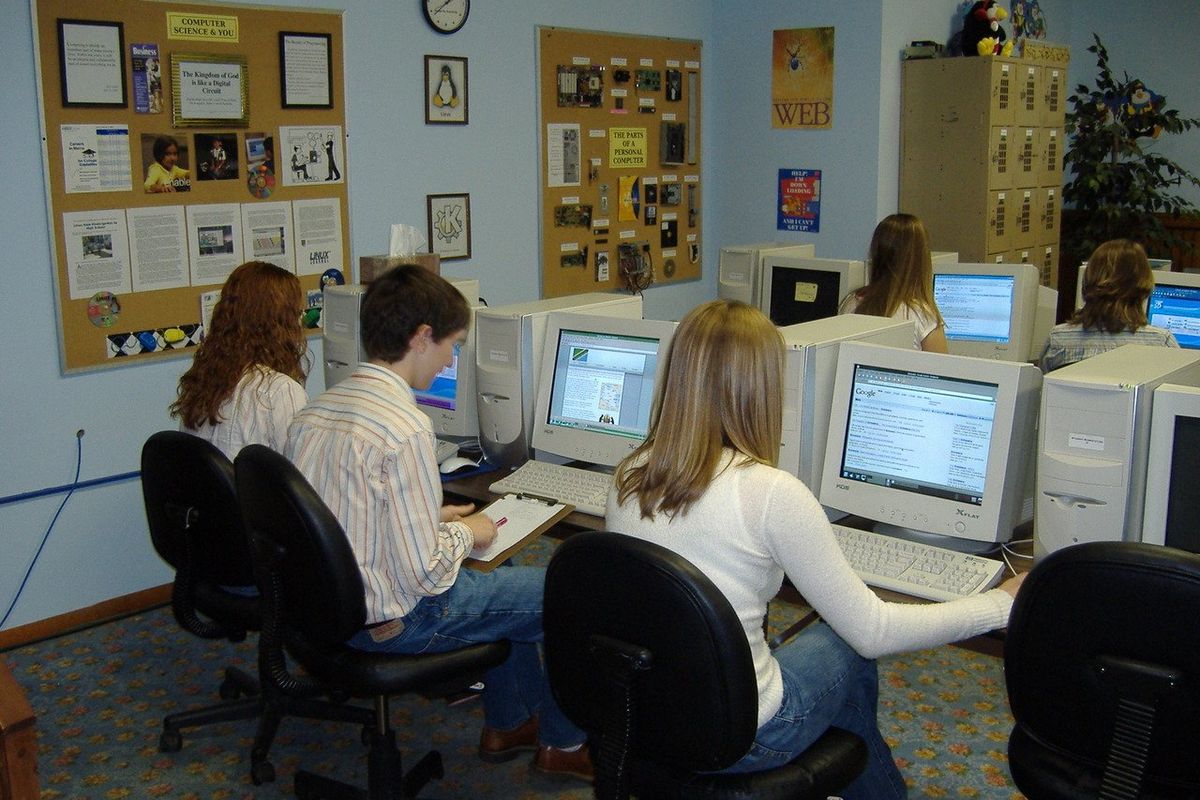Millennials are debating if their generation should be categorized into three 'micro-generations'
"People born in 1981 vs 1996 had drastically different childhoods."

Millennials debate if their generation should be split into 3 micro-generations.
Millennials, those born between 1981 and 1996, have never fully accepted that their generation can be lumped together. From Elder Millennials and Xennials relating more to Gen X, and some Millennials feeling closer to Gen Z, it's a generation still looking to be properly defined.
In an online forum discussing generational differences, Millennial member Bulletwbutterflywing (who was born in the late '80s), posed a controversial viewpoint about Millennials being categorized into three "micro-generations" that garnered a rich discussion among them.

"I believe that there are three distinct micro generations of millennials," they wrote. "The internet and the iPhone in particular changed the way people relate to both time and one other so rapidly, and I think people born in 1981 vs 1996 had drastically different childhoods because of these changes."
They went on to add that class and geographic location are important impacts as well, before explaining that Millennials should not be lumped into one mega generation due to three main cultural markers: home internet, iPhones, and 9/11.

Home Internet: "I am using two years as a reference point: 1994, the year that AOL hit 1 million users. The overwhelming majority of Americans didn’t have home internet, however most had heard of AOL," they wrote. "And 1997: the year that AIM came out and people could connect with one another that way. By 1997, AOL had 10 million users and had started to become an integrated part of pop culture."
iPhones: "I am using 2007 as a reference point because this is the year the first iPhone was released. The majority of Americans would still have dumb phones, however most had heard of the iPhone," they wrote. "The iPhone essentially put the internet in your pocket, shifting the ways people could used both cellular and internet technologies."
9/11: "Millennials were ages 5-20 (school aged) on 9/11. The post 9/11 political environment shifted to one of surveillance and conservatism," they wrote. "I am also connecting this to culture/music, Clear Channel began censoring music which was 'lyrically questionable' in 2001. Music changed. If you know, you know."

Based on these three factors, they note that Millennials should be divided into three "micro-generations" based on their birth year: Older Millennials, True Millennials, and Younger Millennials.
Older Millennials: born 1981-1984 (ages 41-44 today)
Bulletwbutterflywing argues that Older Millennials were in middle school when AOL launched, and likely didn't have it until their later years (late high school and after). "Older Millennials largely had an analog childhood," they wrote. Older Millennials likely used iPhones as young adults who were early in their careers, and "probably understood the political and cultural implications [of 9/11]. Older Millennials clearly remember the world before 9/11."
True Millennials: born 1985- 1990 (ages 35-40 today)
For True Millennials, home internet and the boom of AOL was "peak during middle school and high school", according to Bulletwbutterflywing. iPhone use occurred late in high school, early college, or soon after entering the workforce. "They accessed the internet when sitting at a designated computer," they wrote. Finally, they note True Millennials "likely have clear memories of 9/11 and understood at least some of the implications", adding that they also "remember the world pre-9/11".
Younger Millennials: born 1991-1996 (ages 29- 34 today)
Finally, Younger Millennials "probably missed the peak of AIM and first texted on cell phones", and likely had an iPhone in middle school or high school. "They are more likely than Older and True Millennials to have entered the workforce with a smartphone," they wrote. As for 9/11, they were "young children between the ages of 5-10" and "likely remember 9/11 but didn’t understand the political or cultural implications of either the event nor the concurrent cultural shifts at the time. They likely have less memories of the world pre 9/11 (the youngest might not have memories at all)."

These differences completed their argument, with many Millennials chiming in on whether they agree or disagree with the assessment in an online debate. These are 8 of their differing thoughts:
"I would push back on the idea that younger Millennials don't remember the cultural impacts of 9/11. We absolutely do remember the anger and patriotism and changes that resulted from the event. For context I was born in 94. I remember our school making a American flag out of the handprints of the students. We also had classes wear corresponding shirts to take a group picture in the shape of the American flag. I also remember baseball games adding God Bless America to the second inning stretch. I remember (stupidly) thinking anyone with a turban was a terrorist. I remember going into the terminal when my dad would go on a business trip, then not being able to." - austinstudios
"Yes! I'm a late 80s millennial who remembers when we were 'Gen Y' before 'millennial' became a term/thing. The fact gen Y got swallowed into millennial, but Gen x & Gen z remained was always interesting to me." - OkPattern4844

"I agree. I was born in '83 and consider myself a xennial. I have more in common with late Gen-X than core and late millennials. Those milestones ring pretty true for me. I remember my grandparents getting AOL when I was in middle school and how I'd love going over there to use it (took a few years to get it at home). I was 18 when 9/11 happened. Even though I'd used the internet for years by that point, I didn't use AIM until I went to college (I used AOL to message back home). I'm not even sure if I even had a dumb cell phone yet, but I do remember buying prepaid calling cards to call long distance." - queenquirk
"Yup - I agree with this. Born in 1990. I was 16ish when my home got a cellphone. I didn't get my own cellphone until I was 18 and went to college. One thing I disagree with is using 'iPhone' instead of generic smart phone. I have only ever used an iPhone from work and that wasn't until 2023 :P." N3rdyAvocad0
"Young gen X is much like the older millennial you describe. Hence the Xennial designation that overlaps both. Honestly, as technology advances faster, micro-izing generations just makes sense." - Ralinor

"I’m a younger millennial and my partner is a mid millennial and even though there’s only 4 years difference, we often joke about how it feels that we were from different generations, my likes, speech etc blend more with gen z, whereas they talk about things that I was too young to really be in to or remember. I had a mobile phone in primary school (middle school or elementary for US, unsure but I was about 10), so have always texted etc, I remember some time before it and when home phones were the main thing you’d be using as mobile phones were expensive AF to call or message on, they have a lot of memory without one though but experienced the Internet before me. Our media likes differ wildly as well. It’s interesting, we were basically the last generation to remember not having internet but also the first to be raised on it, a lot happened in those 15 years - so it makes sense that the experience varies wildly." - fillemagique
"This is all so relative. It doesn't matter how you label it. You're still going to find holes in the characterizations no matter what. Under this I would be classified as a true millennial (1987) otherwise core millennials, But regardless of what I actually had and what was going on around me in my childhood and growing up I always felt "culturally" closer to early Millenials or Xennials. Sure I grew up with AIM and spent a lot of time on yahoo chat, But I also distinctly remember and cherish the analog period. Is not having a cell phone until 18 That much different than not having a cell phone until 23 for the millennial group, considering smartphones weren't a thing until 2007? Even when the first iPhone came out, I still didn't have a smartphone for a few years after the fact because iPhone was exclusive to ATT and Verizon didn't launch a competitor for like 2 years. Does does our experience vary that much? I'm just not convinced. Does me living through 9/11 as a 14-year-old provide that much of a difference in experience as opposed to you as an 18-year-old? Just doesn't seem likely for the majority of us. Sure, you can maybe remember bits more than I do, but the overall experience doesn't seem to be much different." Iamuroboros
"Everything for late Millennials applies to those born in 1997 aside from being 4 years old on 9/11, but 4 year olds are capable of retaining long-term memories. I also don’t see how people born in 1991 would be young Millennials over core." - One-Potato-2972







 Woman wearing a sleeping mask asleep in bed by 10 p.m.
Woman wearing a sleeping mask asleep in bed by 10 p.m. Woman struggles to sleep on her phone.
Woman struggles to sleep on her phone.